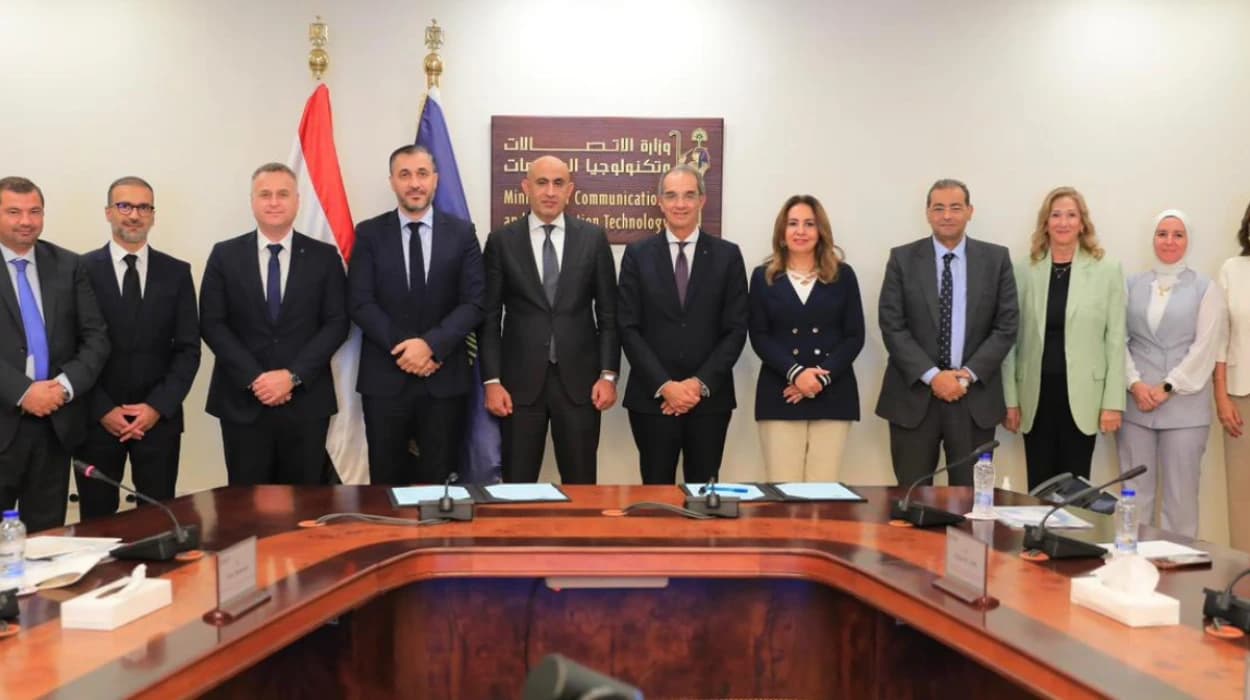Egypt has signed a Memorandum of Understanding (MoU) with HP
to enhance digital education in its WE Applied Technology Schools, expanding
access to cutting-edge digital tools and skills training. The collaboration
aims to boost Egypt’s digital workforce and align with national strategies such
as Vision 2030 and the Digital Egypt Strategy.
Expanding Digital Education through Partnership
Egypt’s Ministry of Communications and Information
Technology (MCIT) recently signed a strategic MoU with global technology leader
HP to advance digital education in Egypt’s WE Applied Technology Schools
network. As reported by Tech Africa News on October 8, 2025, this partnership
will bolster the digital capabilities of applied technology students across 27
schools in 27 governorates nationwide.
Helena Herrero, President of HP Southern Europe, Middle East and Africa, told Technology News and Insights in the Middle East (May 2025) that
"Egypt has set a clear direction with Vision 2030 and the Digital Egypt Strategy – putting technology, education, and innovation at the centre of national development. This creates a strong environment for companies like HP to support national goals through technology, skills development, and innovation."
HP’s role focuses on expanding digital access, modernising education delivery,
and preparing a future-ready workforce with AI-enabled devices and secure
hybrid infrastructures.
WE Applied Technology Schools: A Nationwide Network
The WE Schools for Applied Technology represent a major
educational initiative spearheaded by the Ministry of Communications and
Information Technology in cooperation with the Ministry of Education and
Technical Education. As disclosed by Amwal Al Ghad English in July 2025, the
network grew to 27 schools across all Egyptian governorates, with eight
specifically added for the 2025/2026 academic year in governorates including
Matrouh, Fayoum, Menoufia, Red Sea, Luxor, Aswan, Beni Suef, and North Sinai.
These schools specialise in telecommunications, software and
web development, networking, cybersecurity, data analytics, artificial
intelligence, and digital arts. Importantly, the programme blends theoretical
knowledge with hands-on training, leveraging student internships at state-owned
Telecom Egypt and its subsidiaries, thereby bridging classroom learning with
labour market needs.
Accreditation and Career Pathways
All WE Applied Technology Schools are internationally
accredited by the UK-based education provider Pearson, guaranteeing globally
recognised qualifications. Graduates of these schools have pathways to higher
education in technological colleges, IT institutes, and engineering faculties,
subject to national admission rules, supporting both immediate employment and further
academic advancement.
As reported in 2020 by Intelligent CIO, the first applied
technology school was launched in 2018, with Egypt’s Minister of Education
Tarek Shawky affirming that the system aims to develop Egypt’s technical
education to match international standards. Likewise, Minister of
Communications and Information Technology Amr Talaat underscored the strategy’s
focus on digital transformation and workforce readiness, further supported by
Telecom Egypt’s infrastructure expansion plans including optical fibre and
marine cable networks.
HP’s Expanding Role in Egypt’s Digital Transformation
HP’s enhanced partnership with Egypt is part of a broader
push to support digital transformation and workforce development aligned with
national objectives. The company recently expanded its local teams in Cairo and
reinforced its commitment to delivering AI-enabled solutions, printing
technologies, and collaboration systems that support evolving hybrid work
environments.
Herrero explained that HP’s extensive portfolio and
ecosystem of industry-leading partners enable the delivery of superior user
experiences essential to Egypt’s vision of a digitally empowered society.
Complementary Initiatives in Technical Education
This MoU with HP complements other initiatives led by
Egyptian government ministries and international partners to cultivate skilled
professionals in information and communications technology (ICT). For example,
the Digital Egypt Builders Initiative (DEBI), highlighted by the Ministry of
Communications and Information Technology, fosters advanced ICT training for
university graduates with support from companies like Huawei, Kaspersky, Dell
Technologies, and Vodafone Egypt, emphasising capacity building in AI, big
data, cloud computing, and cyber security.
Additionally, Egypt opened AI and computer science faculties
for vocational school graduates to promote advanced technical education
pathways, reflecting a wider ecosystem approach to digital skills development.
The signing of the MoU between Egypt and HP marks a significant step forward in the country’s efforts to modernise education through technology and prepare a workforce ready for the digital economy. This collaboration integrates global technology expertise into Egypt’s expanding network of applied technology schools, helping to secure Egypt’s position on the digital map regionally and internationally, in line with the nation's Vision 2030.
